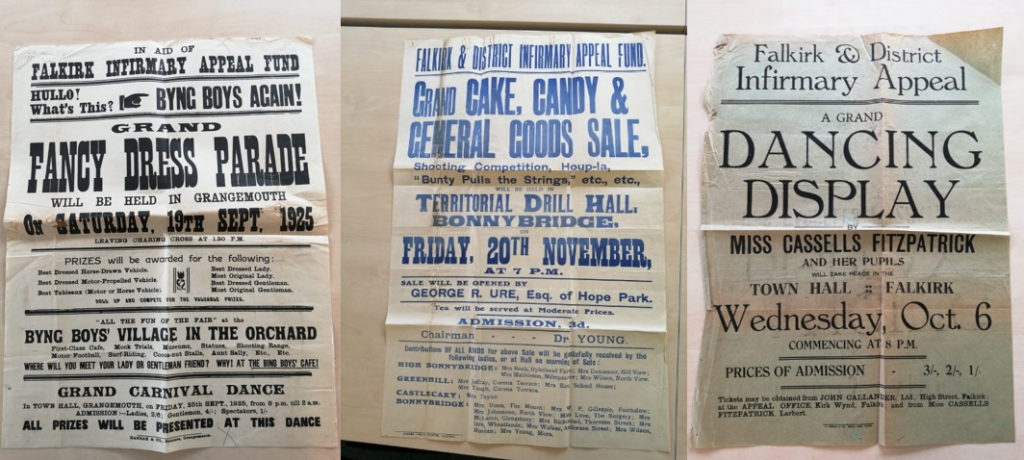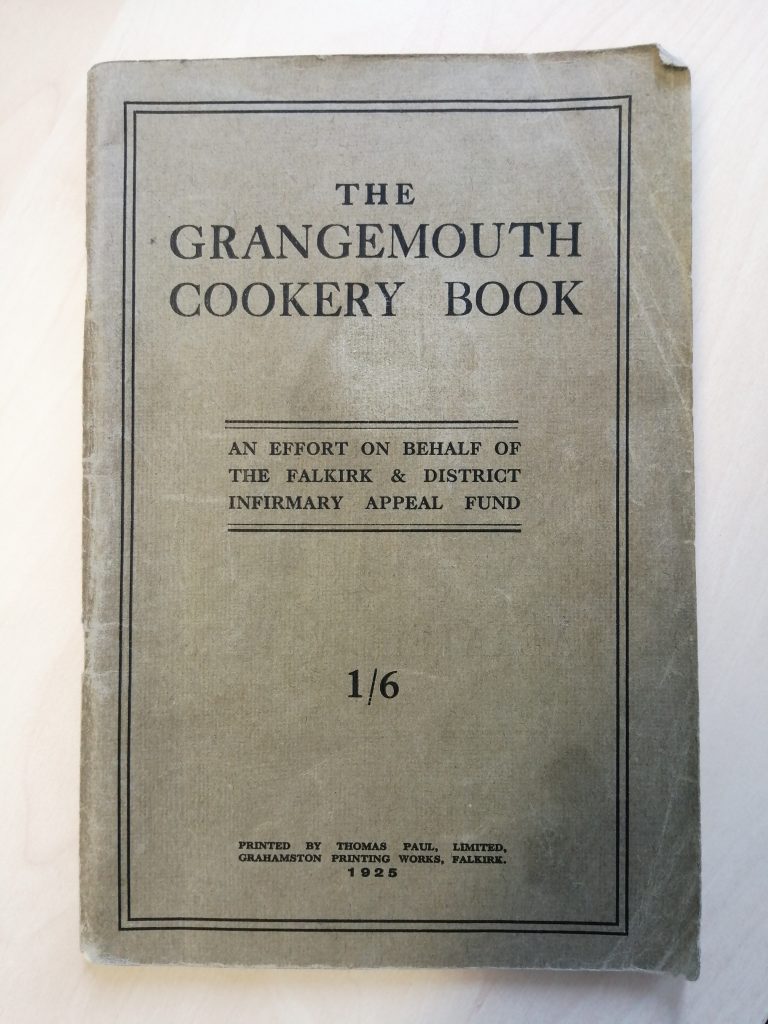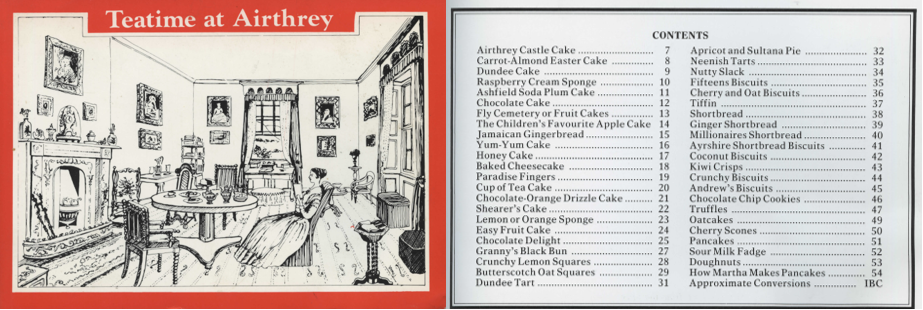Throughout May, ARA Scotland are hosting their popular #ArchiveZ Twitter campaign which sees archive services from across Scotland, the wider UK and Ireland and even further afield internationally, post highlights from their collections and outreach programmes themed around a letter of the alphabet. We’re still early days in the campaign and currently on the letter B. We couldn’t possibly let ‘B’ go by without mentioning baking – that ubiquitous (if the eternal lack of four is anything to go by!) lockdown pursuit!
While we might not let you eat cake in our reading room on a normal day, our archive has plenty of instructional material on baking. Our NHS Forth Valley Archive holds a whole host of material relating to fundraising efforts to support construction of the new Falkirk & District Royal Infirmary in the 1920s. We have posters advertising bazaars, tea dances, singing and music and even a parade of cars! And yes, you guessed it – bake sales galore! But how will we ever know what cakes the bakers might have sold there? Why, through the Grangemouth Cookery Book, of course!


In 1925, recipes sent in from all over the UK – and even a few from further afield! Sandkaaker, anyone? – were compiled into this wonderful cookery book which was sold for one shilling and sixpence, ‘an effort on behalf of the Falkirk & District Infirmary Appeal Fund’. The recipe book includes savoury chapters on pies, soups, chutneys and jellies as well as pages dedicated to all kinds of desserts. And sure, who isn’t intrigued as to what Red Monkey is, let alone how to make it, but we couldn’t possibly resist the lure of all that cake!
In November 2019, the University Archives and Special Collections challenged colleagues across Information Services to recreate recipes from the cakes section of the Grangemouth Cookery Book. We selected a short list of cakes for our colleagues to choose from – mostly to ensure that they didn’t end up needing ingredients from brands that don’t exist anymore! Once recipes were distributed, there were a whole host of other difficulties to overcome – how hot is a ‘sharp’ oven? Or rather, how hot would it have been in 1925? Instructions for recipes assumed a fair amount of knowledge that some of our more novice IS bakers didn’t have! And how much is a ‘dash’ of lemon juice anyway? Does ‘sugar’ mean granulated, caster, icing? And speaking of icing, can I just add some to this cake, it sounds a little dry? (NO! Follow that recipe!) We had chocolate cake, apple cake, date cakes that didn’t need any baking, gluten free cross tarts, a fruit cake whose ingredients you had to decipher from Bible references (is my Bible definitely the same as a 1925 Bible?), some surprisingly modern sounding doughtnuts and so much gingerbread that we had to have a bake off just for them!
But no matter how worried our bakers were, we had the most magnificent bake sale to show for all their hard work. Not a scrap of cake was left at the end of the day, not even from the failed first attempt one of our bakers brought in alongside her successful second attempt to give us a laugh – even that flat specimen was wolfed down with some homemade orange curd and cream!

If the coronavirus pandemic has shed any insight into the human psyche or social history, it has demonstrated that baking (and particularly bread) is still utterly ingrained (pun intended, why not?) in us as a comforting practise and compiling a recipe book to raise funds is far from being antiquated.
In fact, a member of retired University of Stirling staff who attended our Grangemouth Cookery Book Bake Sale in November was reminded of a recipe book that the University’s Airthrey Gardens Group compiled in the 1988 to raise money for keeping our beautiful campus gardens well looked after. Her copy of this recipe book ‘Teatime at Airthrey’ was generously donated to the University’s own Archive collection and may well one day be the subject of a second archive cake sale!

Baking seems to be one of those pursuits where although amazing new recipes and tricks are being developed all the time, we still love to go back to old, old recipes and keep memories alive with it too. How many of us still make our great grandmother’s Christmas cake recipe? Or keep a handwritten recipe card from that friend who makes the best gooey brownies? Recipes and memories of food are things that we treasure all of our lives in a way that doesn’t apply to many things we experience. We’d love to hear about those recipes or cook books that have been passed down the generations or shared across your own. And why not head to History Begins At Home for some ideas on how to get a conversation going with family and friends about their favourite food memories?